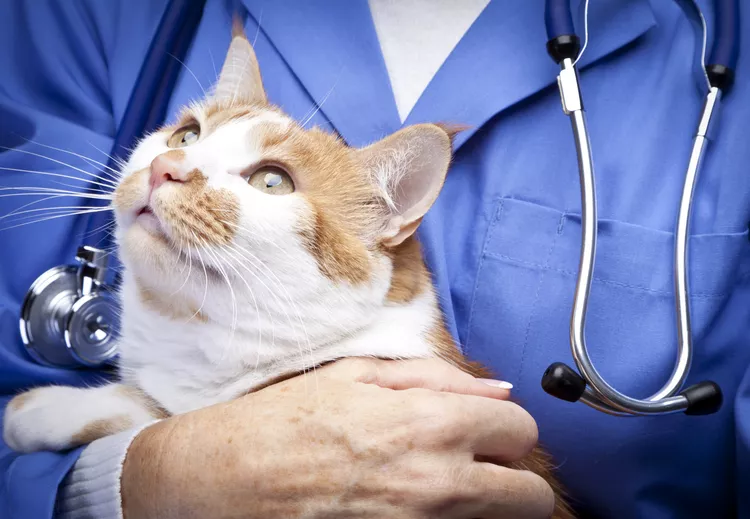
Kidney disease is a general term for many conditions that may affect kidney function in cats. The most common form of kidney disease in cats is called chronic kidney disease, a slowly progressive condition with gradual loss of function of the kidneys over time. Regular kidney function screening on routine bloodwork and urine tests should be part of your cat's regular check-ups.
Here's everything to know about the signs, causes, and treatment of kidney disease in cats.
Kidney disease is a general term for any condition that affects the kidneys and results in decreased kidney function. The kidneys play a vital role in the body and are responsible for filtering the blood. This includes removing toxins and waste products that are then excreted as urine while preserving important balances of electrolytes and water to maintain hydration and normal blood pressure. The kidneys also secrete important compounds that help maintain blood pressure and stimulate red blood cell production.
Many diseases can impact the kidneys and lead to a temporary or permanent reduction in their function. This includes short-term problems such as infections, kidney stones, traumatic injuries, and/or certain toxins. Sometimes, the kidneys can recover completely from these conditions and they return to normal function. Other times, these conditions cause permanent damage that might reduce kidney function and lead to a condition called chronic kidney disease.
Depending on the underlying cause of the kidney disease, signs may vary, especially if a cat has acute or chronic kidney disease. The main symptoms a pet parent might notice include:
Kidney disease has many different causes, and in many cases, veterinarians do not find a specific cause, especially for chronic kidney disease that may have developed gradually over time.
However, some of the most common causes of kidney disease in cats include:
Vets will run various tests to diagnose kidney disease, including blood and urine tests. Elevations in certain values, including the BUN (blood urea nitrogen) and creatinine usually indicate decreased kidney function. Additional findings common with kidney disease can be elevated phosphorus and changes in potassium levels.
If your vet finds any of these issues in your cat's tests, they will want to perform additional testing, like a urine culture, an abdominal ultrasound, and check blood pressure. Based on these findings, a cat’s kidney disease can be staged using the IRIS Staging System to classify how severe and advanced the disease is from stages 1 through 4.
Treatment of kidney disease will be different for acute versus chronic kidney disease, and depends on the underlying cause, but some of the basic ideas are consistent for both.
In the acute phase, cats are often hospitalized for more aggressive therapy. The goal of treatment in this state is give the kidneys time to recover while supporting your cat with IV fluids and medications to reduce symptoms. Cats typically remain in the hospital long enough to see if their kidney values come down to the normal range or if they plateau at a higher point, suggestive of permanent kidney damage.
In severe cases, cats may benefit from dialysis while their kidneys recover, however, only a few facilities in the country offer dialysis for cats. Cats may continue to improve after leaving the hospital and their kidney values can still return to normal days or weeks later.
In the chronic phase, treatments are aimed at slowing the progression of the disease and managing the cat's symptoms. Cats with chronic kidney disease benefit from extra fluids daily to maintain hydration. This might mean feeding canned food only, mixing extra water into their food, or even giving them fluids under the skin daily. Depending on how advanced their disease is, they may need a special kidney diet or medications to reduce nausea, stimulate their appetite, or reduce pain.
Prognosis varies greatly for cats with kidney disease, depending on whether it is acute or chronic and the suspected underlying causes. For cats with acute kidney disease that can be cured, such as those with an infection, the prognosis is excellent if they are treated right away and their kidney values return to normal after treatment. For cats with more severe acute kidney injuries that have persistently elevated kidney values, as well as older cats with chronic kidney disease, the prognosis varies based on how advanced their disease is and how quickly it progresses.
In the majority of cases, kidney disease cannot be directly prevented. A few situations are preventable, such as access to toxins that could damage the kidneys. If you live with a cat, keep toxins like antifreeze, human medications, and toxic plants out of reach or out of the home entirely. Regular, annual check-ups and monitoring can help catch signs of early disease on blood and urine tests, so these should be performed annually for all cats and every six months for senior cats.
Most forms of kidney disease are not contagious between cats or from cats to other species of animals or humans.
Cats with chronic kidney disease can benefit from a kidney diet that is slightly lower in protein and phosphorus. However, often cats with advanced kidney disease have a poor appetite and feel nauseous, and in those cases, your vet may recommend feeding them whatever they will tolerate.
Up to 30 percent of cats over age 15 have some degree of chronic kidney disease. It is one of the most common causes of death for all cats over age 5.
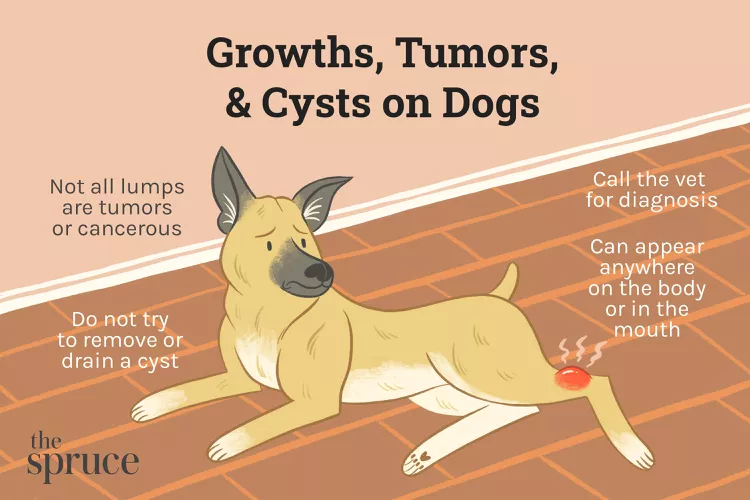
Tumors, Growths, and Cysts in Dogs
Tumors, lumps, growths, or cysts are commonly found on dogs. Learn the causes, treatments, and preventative measures.
Eye Injuries and Infections in Dogs
Dogs can suffer eye injuries that range from mildly irritating to serious medical emergencies. Learn the causes, treatment, and prevention.
Vestibular Disease in Dogs
Vestibular disease affects a dog's balance and eye movements. Find out about the signs, causes, and treatment of vestibular disease in dogs.
Is Acetaminophen Safe for Dogs?
Acetaminophen is used by humans for pain and fever relief, but is it safe for dogs? Here's what you need to know before giving your dog acetaminophen.
Can Dogs Eat Zucchini? Everything to Know About This Hardy Summer Squash
Zucchini is a nutritious food that's safe for dogs to eat in moderation. This low-calorie, high-fiber vegetable can be incorporated as a healthy treat in a dog's balanced diet. Learn more about its health benefits, potential risks, and how to prepare it.
Can Dogs Eat Popcorn? What You Need to Know for Movie Night
Dogs can eat popcorn, but there are safety concerns. Find out how to safely feed your dog popcorn and what you should do if you're concerned.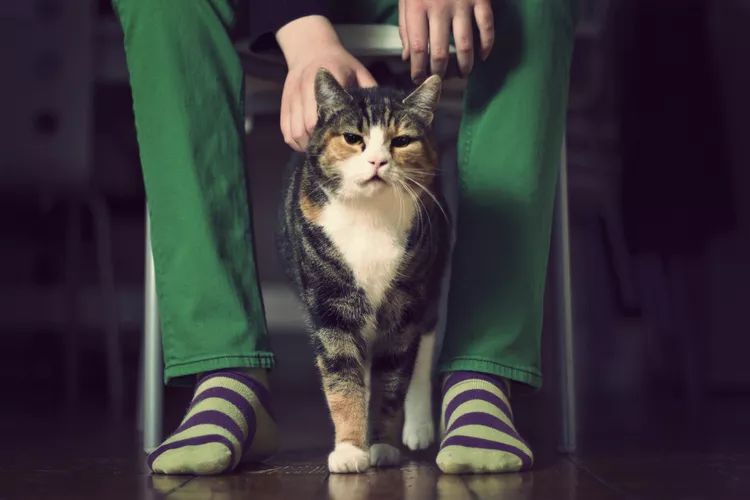
65 Irish Cat Names
Irish cat names can pay homage to historical places, local cuisine, famous Irish actors and musicians, or other wonderful aspects of the Emerald Isle.
46 Egyptian Cat Names
Whether inspired by notable Egyptian deities, locales, or pharaohs, Egyptian cat names can bring out the divinity of your noble feline companion.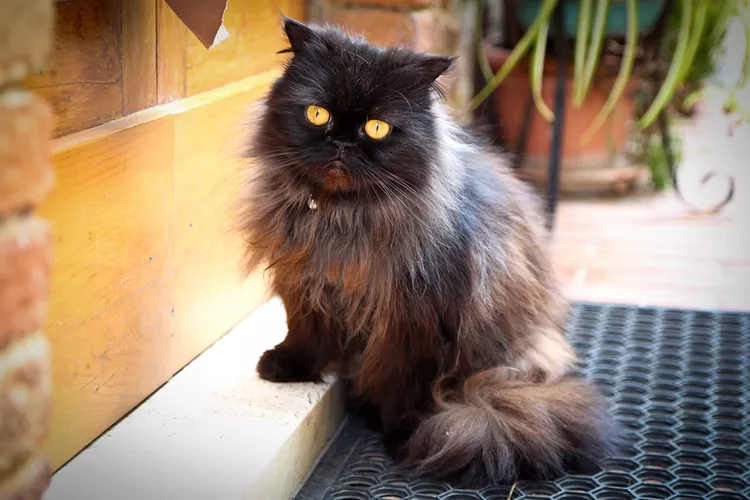
Are Ant Traps Safe for Cats?
Here's how to know if ant traps are safe for cats and how to keep yours free from harm if you have an ant problem.
The 6 Best Cat Nail Clippers of 2024 for a Safe Trim
Clipping your cat's nails can save your furniture and keep your kitty comfortable. We asked veterinarians for their cat nail clipper recommendations.
Is Neosporin Safe for Cats?
A brief summary of concerns a cat owner should be aware of before putting Neosporin on their cat, plus tips for things they can use at home instead.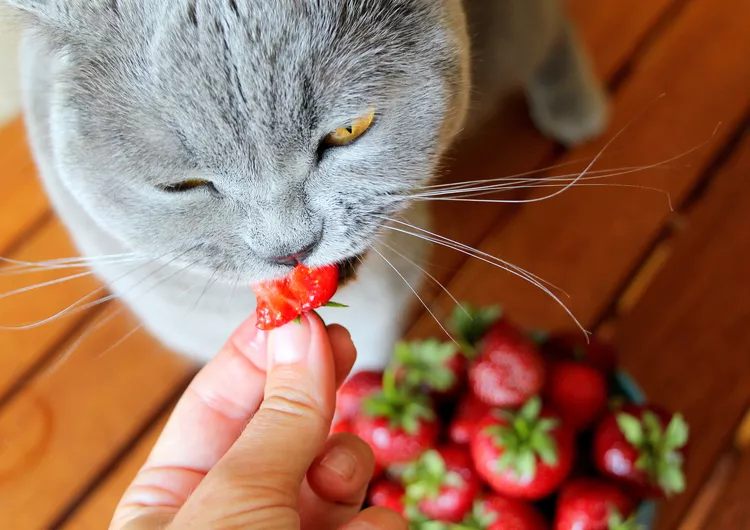
Can Cats Eat Strawberries? How to Safely Share This Summer Berry
Although cats are primarily meat eaters, strawberries may be an interesting and tasty snack for your feline friend. Find out the risks of feeding strawberries to cats and how to safely let your cat enjoy this fruit.
Cute Pictures & Facts About Calico Cats & Kittens
Learn fascinating facts about calico cats, including photos, the genetics behind this color combination, and common folklore and traditions.
12 Most Popular Cat Breeds for Feline Lovers
These 12 cat breeds, like the Siamese and Sphynx, are known for their unique appearances and personalities. Learn what makes them so popular.
Balinese: Cat Breed Profile, Characteristics & Care
The Balinese cat is playful, sociable, elegant, intelligent, and a touch on the vocal side. Learn about the Balinese, including appearance, temperament, health, and care needs.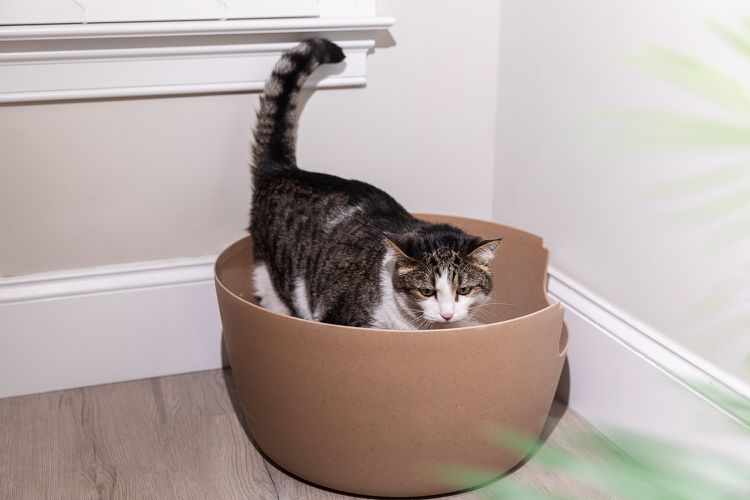
Why Cats Don't Always Cover Their Poop
Cats may not cover their poop for a few different reasons, including being territorial, sending a message to their owner, and not liking the litter.
Cavapoo: Dog Breed Characteristics & Care
The Cavapoo is a hybrid of the Cavalier King Charles spaniel and a toy or miniature poodle. Learn why these teddy-bear-looking dogs make the perfect addition to your family.
Why Dogs Eat Poop and How to Stop Them
Is your dog eating poop? Some dogs do this because of stress or illness. Learn how to prevent stool eating, or coprophagia, in dogs.
Can Dogs Get Depression? How to Help Your Sad Dog
Can dogs get depression? Learn about the signs of depression in dogs and find out how to help your sad dog.
4 Reasons Why Your Dog Licks Their Butt
Butt-licking in dogs can be a part of normal grooming, but excessive butt-licking is not normal. Read about the most common reasons for this behavior.